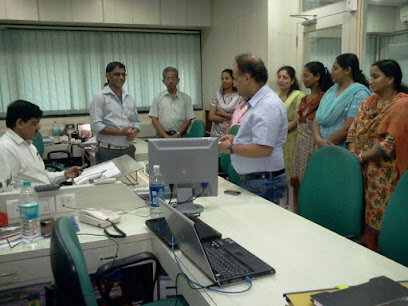Best Water Law Lawyers in India
Share your needs with us, get contacted by law firms.
Free. Takes 2 min.
Or refine your search by selecting a city:
List of the best lawyers in India
About Water Law in India
Water law in India encompasses a wide array of legal rules and regulations managing the use, distribution, and protection of water resources. India, being a federal country, has water listed as a subject under both central and state governments. This means that there are national legislations as well as state-specific laws regulating water rights, usage, pollution control, groundwater extraction, and inter-state river disputes. The Indian Constitution provides the framework, while key laws like the Water (Prevention and Control of Pollution) Act 1974, the Environment Protection Act 1986, and various state acts create a complex regulatory environment. Water law in India seeks to balance the needs of agricultural, domestic, and industrial users while also ensuring water conservation and environmental protection.
Why You May Need a Lawyer
People may require legal help in water law for several reasons. Some common situations include disputes over water sharing between states or communities, conflict regarding water usage rights for agriculture or industry, issues around groundwater extraction, or challenges to water supply and quality in urban or rural areas. Landowners may encounter legal hurdles regarding water rights on their property, especially when undertaking construction or irrigation projects. Industrial units and large infrastructure projects need legal guidance to secure water use permissions and comply with environmental regulations. Additionally, citizens or communities facing contamination, over-extraction, or diversion of water bodies may seek recourse through legal action. A lawyer helps in interpreting the applicable laws, representing clients before regulatory authorities, and resolving disputes either through negotiation or litigation.
Local Laws Overview
The primary responsibility for water regulation in India rests with the states, making local laws very important. However, the central government also enacts significant laws affecting water management. Some key aspects of local law include:
- Water as a state subject: Each state regulates use and allocation of water within its jurisdiction, including surface water and groundwater.
- Surface water and groundwater: States often have separate rules and permits for tapping groundwater or diverting river water.
- River Boards Act 1956 and Inter-State River Water Disputes Act 1956: These central laws address inter-state sharing disputes and the creation of tribunals for resolution.
- Water (Prevention and Control of Pollution) Act 1974: This central act empowers authorities to regulate and penalize activities leading to water pollution.
- Irrigation and Drainage Laws: Many states have their own laws around irrigation canals, minor water bodies, and water user associations.
- Borewell and groundwater extraction: Urban local bodies and some state groundwater authorities regulate borewell drilling and require permits.
- Water supply and sanitation: Local municipal corporations oversee water distribution, quality, and sewage management within city limits.
Frequently Asked Questions
What is the role of the central government in water regulation?
While water is primarily a state subject, the central government enacts laws affecting water pollution control, inter-state rivers, and supports major projects. It also monitors compliance with environment related water norms and intervenes in case of inter-state disputes.
How are water rights determined for landowners?
In most states, rights to surface water are subject to government control, and landowners must comply with local regulations before using water bodies, digging wells, or changing watercourses. Groundwater rights are often presumed to belong to landowners, but extraction is regulated in many areas, especially in water-scarce or over-exploited regions.
What legal options do I have if my water is being polluted?
Individuals or communities can file a complaint with the State Pollution Control Board, approach the National Green Tribunal, or seek relief from local authorities. Provisions also exist under civil law for damages, and sometimes criminal proceedings may be initiated for gross violations.
How are inter-state river water disputes resolved?
Such disputes are addressed under the Inter-State River Water Disputes Act. Special tribunals are formed to hear the case, and the central government notifies and acts on the tribunal’s decision. The Supreme Court may also be approached in some instances.
Can industries extract groundwater freely?
No. Industries must obtain clearances from the Central Ground Water Authority or the respective State Ground Water Authorities, especially for new or expanded extraction, and must adhere to conditions governing the use, recharge and reporting.
What permissions are required for drilling a borewell?
Local urban or rural authorities often require permits for borewell drilling. In areas notified as critical by state or central agencies, stricter permissions and compliance norms are enforced due to depletion concerns.
Is rainwater harvesting legally mandated in India?
Several states and cities have mandated rainwater harvesting for new buildings and large plots, with non-compliance resulting in penalties or denial of approvals.
What are the penalties for polluting a waterbody?
Penalties may include fines, imprisonment, and closure of industrial operation under the Water (Prevention and Control of Pollution) Act as well as orders from the National Green Tribunal. Civil liability for damages may also arise.
Can citizens access government water quality data?
Yes. Many State Pollution Control Boards and the Central Pollution Control Board maintain public records of major water quality monitoring data. Citizens can also file applications under the Right to Information Act to access specific data.
How does one challenge an illegal diversion of water?
The affected party can file complaints with local authorities, state water resource departments, or approach courts for injunctions and remedy. In urgent circumstances, writ petitions in High Courts may be possible for immediate relief.
Additional Resources
Several organizations and government bodies provide information and assistance regarding water law in India. These include:
- Central Water Commission: Technical and policy advisory authority on water resources development.
- Central Ground Water Authority: Regulates and controls groundwater development and management.
- State Pollution Control Boards: Handles complaints regarding water pollution and issues consents and clearances.
- National Water Development Agency: Deals with planning and implementation of water resource projects.
- National Green Tribunal: Specialized court for environmental cases including water disputes and pollution.
- Ministry of Jal Shakti: Nodal ministry for all water-related matters at the central government.
- Law schools, legal aid clinics, and environmental NGOs: Provide information, training, and in some cases free legal advice.
Next Steps
If you think you need legal assistance in water law:
- Identify the exact issue you are facing, whether it relates to water use rights, pollution, sharing disputes, or permissions.
- Gather all relevant documents including land records, permits, notices, or any communication from authorities.
- Reach out to a qualified lawyer specializing in environmental or water law. You can contact local bar associations, legal aid services, or environmental organizations to find appropriate legal assistance.
- For urgent matters, consider filing a complaint with the relevant government authority or approaching the National Green Tribunal directly.
- If the issue is technical, also consider consulting hydrologists or civil engineers for expert reports that can support your legal case.
Lawzana helps you find the best lawyers and law firms in India through a curated and pre-screened list of qualified legal professionals. Our platform offers rankings and detailed profiles of attorneys and law firms, allowing you to compare based on practice areas, including Water Law, experience, and client feedback.
Each profile includes a description of the firm's areas of practice, client reviews, team members and partners, year of establishment, spoken languages, office locations, contact information, social media presence, and any published articles or resources. Most firms on our platform speak English and are experienced in both local and international legal matters.
Get a quote from top-rated law firms in India — quickly, securely, and without unnecessary hassle.
Disclaimer:
The information provided on this page is for general informational purposes only and does not constitute legal advice. While we strive to ensure the accuracy and relevance of the content, legal information may change over time, and interpretations of the law can vary. You should always consult with a qualified legal professional for advice specific to your situation.
We disclaim all liability for actions taken or not taken based on the content of this page. If you believe any information is incorrect or outdated, please contact us, and we will review and update it where appropriate.
Browse water law law firms by city in India
Refine your search by selecting a city.
















